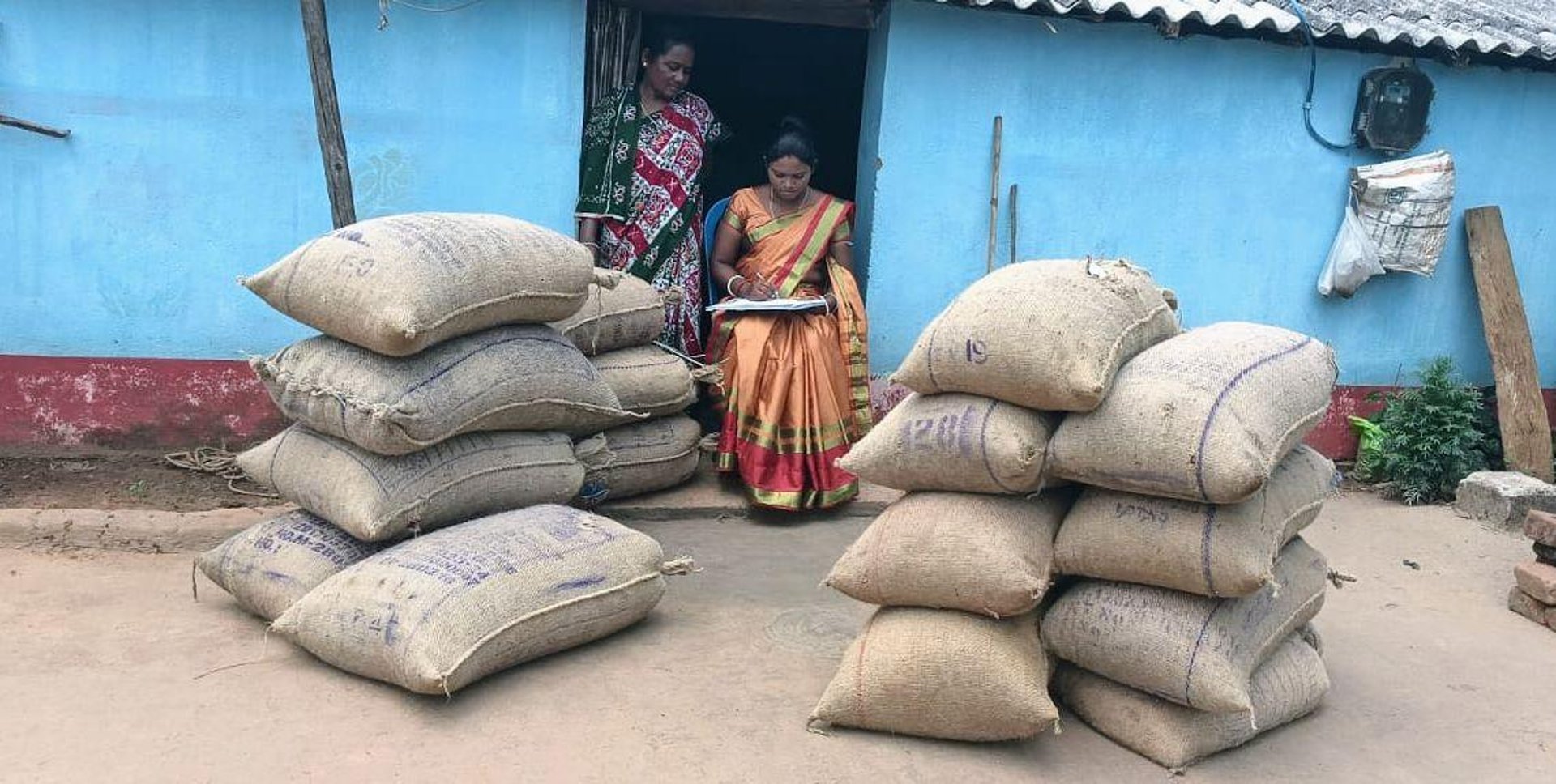
How women from a Particularly Vulnerable Tribal Group transformed unmarketable forest seeds into industrial supply chains
25.05.25
From Waste to Value: Odisha’s Karanj Success Story
The Bonda Remolena Producer Company (BRPC) is India's first producer company (PC) whose entire Board of Directors (BoDs) is composed of members from a Particularly Vulnerable Tribal Group (PVTG). Under the Sulabhaa Initiative—led by Odisha’s Department of Mission Shakti and the Initiative on the Forest Economy (IoFE)—the company completed its first collective sale of karanj seeds to Terviva, a global company specialising in sustainable oils.
‘We never imagined it could be sold. I used to sweep away karanj seeds so grass could grow for my cow to graze,’ said Ms Ambika Kirsani, a board member of BRPC.
Unlike established forest products, such as mahua and sal, karanj had little or no market presence in Odisha's forest regions. ‘My mother and grandmother never touched it. It was just a wild seed, not something valuable like Amla,’ explained Ms Chapti Muduli, another community leader.Recently, six women-led PCs across Malkangiri, Keonjhar, and Mayurbhanj districts collected and sold 1,779 kg of karanj seeds to Terviva. BRPC contributed 169 kg at ₹45 per kg, generating ₹7,605 from their portion of the sale.
‘This was our first collective sale, and it is just the beginning. The Sulabhaa Initiative opened our eyes to the value of seeds we once ignored. We now see the potential to do much more next year,’ said Ms Shanti Murmu of the Manaya Green Shakti Producer Company.
The women managed the entire supply chain process—transporting seeds from remote villages to company warehouses using public transport, overseeing quality control, and coordinating across multiple districts. This established Odisha’s first decentralised, women-powered supply chain for non-timber forest products (NTFPs).
‘We are pleased to collaborate with the Sulabhaa Initiative in this pivotal step towards fostering sustainable development. In the coming years, we will work together to collect more seeds, generating greater income for local communities and producing more clean fuel,’ said Mr Naveen Sikka, Founder and Chief Executive Officer (CEO) of Terviva.
The oil extracted from karanj seeds can be used to produce biodiesel and sustainable aviation fuel (SAF), serving as an alternative to fossil fuels. It also has applications in traditional medicine for skin treatments, as a natural fertiliser, and in commercial products, including soaps, lotions, and industrial lubricants.
‘We are dedicated to empowering local communities and expanding the ecosystem around the 'super tree' Pongamia, which has a remarkably low carbon footprint compared to traditional energy crops and fossil fuels,’ said Mr Simmar Pal Singh, Chief Operating Officer (COO) of Terviva.
This success demonstrates how PVTG communities can transition from informal forest product collection to formal industrial supply chains while retaining community ownership. The karanj sale marks the first step in developing sustainable market linkages for previously unmarketable forest resources in Odisha.
